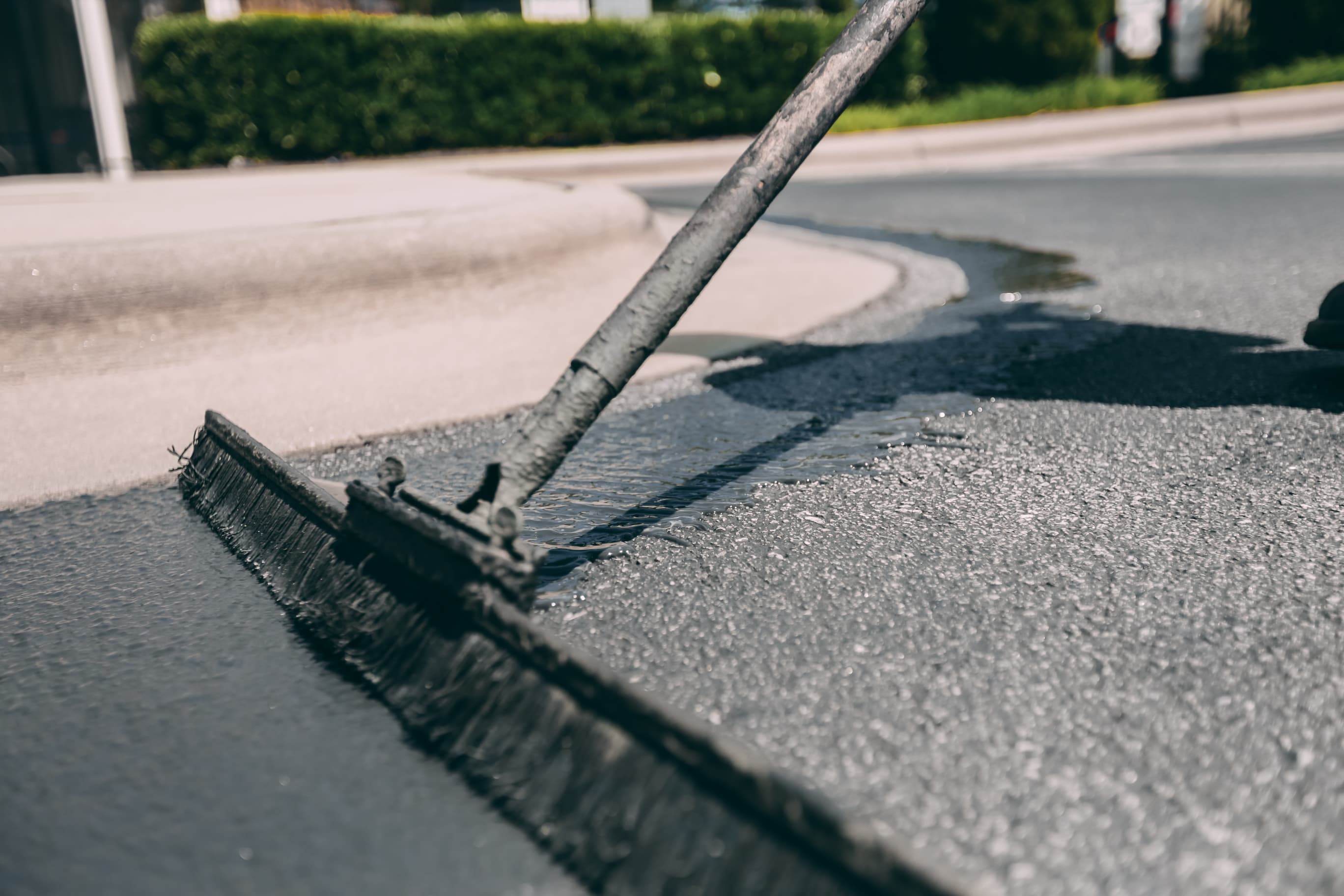Revitalize Your Home with Regrading and Asphalt Sealing Techniques
Revitalize Your Home with Regrading and Asphalt Sealing Techniques
Blog Article
Warm Mix Asphalt: A Lasting Solution for Pavement
Warm Mix Asphalt (HMA) has actually arised as a leading sustainable option for pavement options, providing a myriad of environmental benefits and cutting-edge modern technologies. As the need for green building and construction practices expands, exploring the subtleties of HMA's sustainability can offer important understandings into the future of pavement options.
Ecological Benefits of Hot Mix Asphalt

Furthermore, Hot Mix Asphalt assists to reduce city warmth island impacts. Its dark shade soaks up sunshine, lowering the amount of warm reflected back right into the environment contrasted to lighter-colored pavements. This can lower ambient temperatures in urban locations, lowering the need for air conditioning and eventually minimizing energy intake.
In enhancement, Warm Mix Asphalt contributes to boosted stormwater management. Its porous nature enables water to penetrate the sidewalk and charge groundwater supplies, reducing drainage and the danger of flooding. These environmental advantages make Warm Mix Asphalt a sustainable choice for leading roads and highways.
Energy Effectiveness in HMA Manufacturing
Is power effectiveness a critical aspect in the manufacturing of Warm Mix Asphalt (HMA)? Power plays a substantial role in the production of HMA, influencing both expense and ecological sustainability. One essential element of energy efficiency in HMA manufacturing is the usage of cozy mix asphalt (WMA) innovations.
In addition, improvements in plant innovations have actually led to even more energy-efficient HMA manufacturing processes. By enhancing power use in HMA manufacturing, the market can minimize its carbon impact while preserving top quality sidewalk products.
Recyclability of Warm Mix Asphalt
The recyclability of Hot Mix Asphalt (HMA) is a critical facet of its sustainability and long-lasting ecological effect. HMA is just one of the most recycled products in the United States, with over 100 million lots of reclaimed asphalt sidewalk investigate this site (RAP) being reused annually in new sidewalk building and construction. Recycling HMA provides several environmental advantages, such as minimizing the need for virgin materials, reducing energy usage throughout manufacturing, and reducing the amount of waste sent to garbage dumps.
The process of recycling HMA entails crushing the existing sidewalk, squashing it right into smaller pieces, and mixing it with brand-new accumulation and asphalt binder to create a recycled mix. In general, the recyclability of HMA plays a considerable role in promoting lasting practices within the sidewalk industry.

Long-Term Performance of HMA
Asphalt sidewalks demonstrate toughness and durability over an extensive duration, reflecting the long-term efficiency of Hot Mix Asphalt (HMA) Furthermore, innovations in HMA innovation, such as the usage of polymer-modified binders and cozy mix asphalt, have even more improved the resilience and longevity of HMA sidewalks. By focusing on high quality building and maintenance techniques, HMA continues to confirm itself as a cost-efficient and sustainable remedy for resilient sidewalk framework.

HMA: Durability and Sustainability
Showing both durability and look at this now sustainability, Hot Mix Asphalt (HMA) has come to be a keystone in the construction of long-lasting sidewalk frameworks - hot mix asphalt. HMA's longevity comes from its capacity to endure hefty loads, harsh weather, and high website traffic volumes, making it a trustworthy option for highways, highways, and airport runways. The make-up of HMA, which typically includes accumulations, binder, and filler, plays a crucial role in enhancing its longevity and resistance to put on and tear
In addition, HMA's sustainability depends on its recyclability and energy-efficient production process. The ability to recycle recovered asphalt sidewalk (RAP) in new HMA mixtures lowers the demand for virgin products and decreases the ecological influence of pavement construction and maintenance. Furthermore, the power effectiveness of producing HMA depends on its lower blending temperatures contrasted to other sidewalk products, bring about minimized power intake and greenhouse gas discharges.
Verdict
In verdict, warm mix asphalt (HMA) provides a lasting remedy for pavement with its eco pleasant qualities. HMA's recyclability, power performance in production, check my source and lasting resilience make it a green option for road building.
HMA is one of the most recycled materials in the United States, with over 100 million tons of redeemed asphalt sidewalk (RAP) being recycled each year in new sidewalk building and construction.The process of recycling HMA entails milling the existing sidewalk, crushing it into smaller sized items, and mixing it with new aggregate and asphalt binder to develop a recycled mix.Asphalt sidewalks demonstrate longevity and durability over an extended period, reflecting the long-lasting performance of Warm Mix Asphalt (HMA) Additionally, advancements in HMA technology, such as the use of polymer-modified binders and warm mix asphalt, have even more improved the toughness and durability of HMA pavements. The ability to recycle redeemed asphalt sidewalk (RAP) in new HMA mixtures decreases the need for virgin materials and lessens the ecological effect of pavement building and construction and maintenance.
Report this page